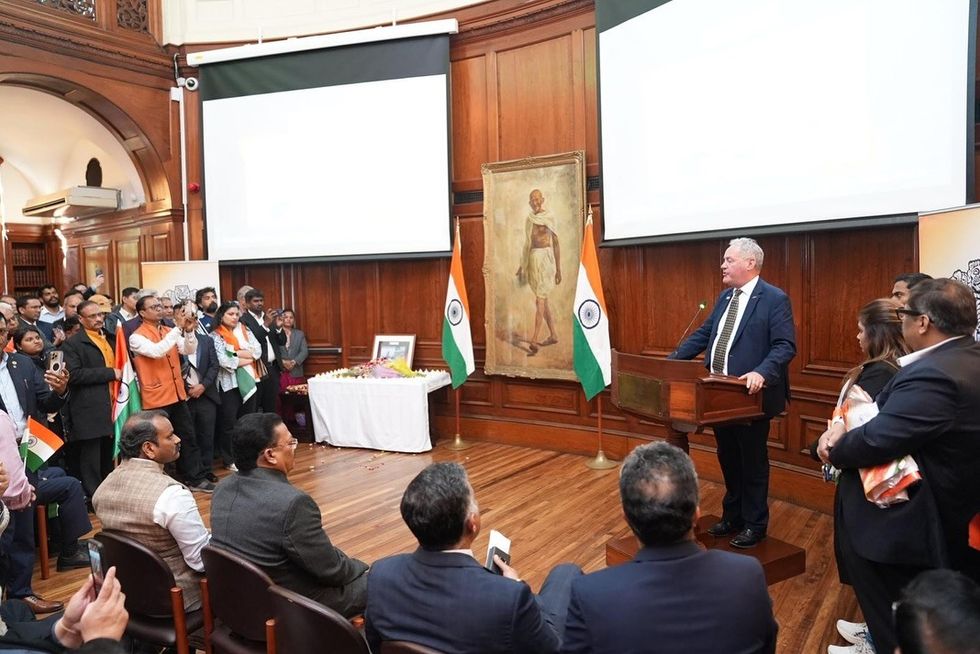IT IS quite common for southeast Asian families to live together in inter-generation households in the UK, but what does this mean in terms of inheritance and how can we ensure everyone in the family is included in the estate?
If you live in a blended or large family and your relationships with those people have changed, it is best to ensure that your will still reflects your wishes.
Intergenerational wealth planning If you’re thinking of protecting your assets, it’s important to identify any risks and challenges your estate might face via intergenerational wealth planning.
To ensure your money ends up with the people you want, there are a number of options you can consider.
One way includes setting up a lifetime trust where you can keep your assets safe for your trustees and beneficiaries.

Trusts can be created in your lifetime, but also in a will, where they will only take effect upon your death.
As a trustee, you oversee and control the trust. To be eligible, you must be over 18 and have full mental capacity.
The beneficiaries will receive the money or property in the trusts, under the terms of trust or any letter of wishes prepared by the creator of the trust.
The tax you will pay depends on the type of trust you have. They are subject to income, capital gains and inheritance tax.
The types of trust include discretionary, loan, discounted gift, discretionary will, absolute or life interest trust.
A trust is separate from your estate, so your trustees can access the money held in it and use it to pay inheritance tax (currently at 40 per cent for estates over £325,000) and any probate fees that arise.
Financial planning
Speaking with a financial planner can be a good way to forecast your future finances. They will be able to show you how much money you could have in the future, when you can afford to retire and whether you have enough money.
Estate planning and financial planning go hand in hand, and you can speak to a solicitor about how to plan for the future.
Tax payment – Nil-rate band
Currently the rate before inheritance tax is payable is £325,000 per person and any unused allowance can be transferred between civil partners and married couples when one spouse dies.
Tax payment – Residence nil-rate band The government introduced the residence nil-rate band1 in 2017. It is an allowance for passing on the family home without having to pay any inheritance tax.
Currently the rate is £175,000
per person and any unused allowance can be transferred between civil partners and married couples when one spouse dies. This means a surviving spouse of civil partner can pass up to £1 million to the next generation free of inheritance tax.
Review your will
The rules can be complicated and there are limits on how you can pass on your home, including certain types of trusts, so it is best review your will and to speak to an estate-planning solicitor to ensure your estate may benefit from the residence nilrate band.
Pass on your pension
Most pensions aren’t included when your inheritance tax bill is calculated. If you have enough money to use other assets to fund your retirement and leave your pensions untouched, you could pass it on inheritance tax-free while reducing the size of your taxable estate.
If you’re thinking of creating or updating a will, it is advised to speak to a specialist wills solicitor who will be able to help you plan how your estate is divided upon your death.
Thinking about how we look after our family and friends after we die can be difficult, but the pandemic has shown us that it is better to be prepared in good time, so our loved ones can be cared for after we die.
Work out and apply the residence nilrate band for Inheritance Tax through GOV.UK (www.gov.uk).
Lubna Shuja is the vice-president of the Law Society of England and Wales. She will become the first Asian president in October 2022 and the seventh female president when she takes office.



















 Bob Blackman MP speaks during the event
Bob Blackman MP speaks during the event